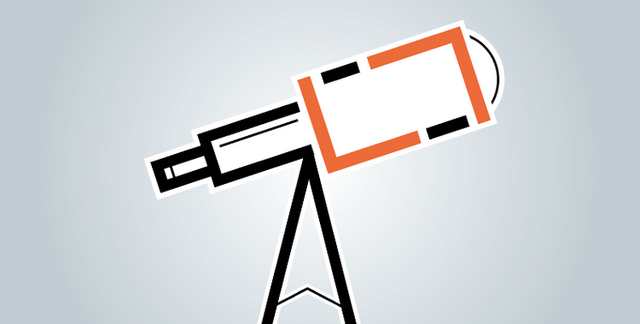
Kapitel
Qatar is attractive because the country offers strong economic stability, major government investment, and a strategic location linking Europe, Asia, and Africa. It has world-class infrastructure: ports, airports, roads, and digital networks, built largely through large-scale development programs and energy revenues. Qatar promotes foreign investment through free zones and special economic areas that allow full foreign ownership, streamlined licensing, and tax incentives. The regulatory environment is relatively predictable, with active support for international companies, especially in construction, energy, logistics, finance, technology, and professional services. A high-income market, modern urban centers like Doha, and a large expatriate workforce also make it appealing for regional headquarters and Gulf-focused expansion.
Kennzahlen
- Fläche
- 11,586 km2
- Bevölkerung
- 2,568,426 (2025 est.)
- Regierungsform
- absolute monarchy
- Sprachen
- Arabic (official), English commonly used as a second language
- BIP
- $222.12 billion (2025 est.)
- Wachstumsrate
- 2.9% (2025 est.)
- HDI
- 45
- Hauptstadt
- Doha
Makroökonomische Indikatoren
A gas-rich economy with strong fiscal health:
Qatar has one of the highest GDP per capita figures in the world, largely due to its vast natural gas reserves. The country is the world’s largest exporter of liquefied natural gas (LNG), with long-term contracts securing stable revenue. High energy prices have bolstered government finances, allowing Qatar to maintain strong fiscal surpluses and invest heavily in infrastructure.
Diversification efforts and infrastructure development:
Qatar has been actively working to diversify its economy under the Qatar National Vision 2030. Key sectors targeted for growth include finance, logistics, and tourism, with projects such as the expansion of Hamad International Airport and Lusail City development. Hosting the FIFA World Cup in 2022 further boosted infrastructure investment, enhancing the country’s global profile.
Geopolitical stability and investment climate:
Unlike some of its Gulf neighbors, Qatar has managed to maintain a stable political environment, which has helped attract foreign investment. The country has strengthened economic ties with Europe and Asia, particularly in LNG exports. However, tensions with regional rivals, including past diplomatic disputes with Saudi Arabia and the UAE, highlight ongoing geopolitical risks.
Qatar’s economic outlook:
The Qatari economy is expected to maintain solid growth, driven by sustained LNG exports, infrastructure expansion, and diversification efforts. However, challenges remain in reducing dependence on hydrocarbons and fostering private-sector-led growth. Continued investment in technology, renewable energy, and financial services will be key to ensuring long-term economic sustainability.
IMF Statistics:
| Subject descriptor | 2023 | 2024 | 2025 | 2026 | 2027 |
|---|---|---|---|---|---|
|
All Items, Consumer price index (CPI), Period average, percent change Percent (Units) |
3.086 |
1.216 |
0.136 |
2.621 |
2.303 |
|
Current account balance (credit less debit), Percent of GDP Percent (Units) |
17.114 |
17.355 |
10.834 |
10.202 |
11.96 |
|
Current account balance (credit less debit), US dollar US dollar (Billions) |
36.453 |
38.117 |
24.065 |
24.398 |
31.112 |
|
Exports of goods and services, Volume, Free on board (FOB), Percent change Percent (Units) |
-4.243 |
-4.557 |
-0.361 |
12.609 |
14.606 |
|
Gross domestic product (GDP), Constant prices, Percent change Percent (Units) |
1.54 |
2.367 |
2.882 |
6.087 |
7.774 |
|
Gross domestic product (GDP), Current prices, Per capita, US dollar US dollar (Units) |
69540.54 |
70994.325 |
71441.418 |
76534.104 |
82835.12 |
|
Gross domestic product (GDP), Current prices, US dollar US dollar (Billions) |
213.003 |
219.631 |
222.119 |
239.142 |
260.125 |
|
Imports of goods and services, Volume, Cost insurance freight (CIF), Percent change Percent (Units) |
1.54 |
2.367 |
2.882 |
6.087 |
7.774 |
Source: IMF Statistics - Qatar
Luxemburg und das Land
Existing conventions and agreements
Non double taxation agreement
In order to promote international economic and financial relations in the interest of the Grand Duchy of Luxembourg, the Luxembourg government negotiates bilateral agreements for the avoidance of double taxation and prevent fiscal evasion with respect to Taxes on Income and on fortune with third countries.
- Convention from 03.07.2009 (Memorial 2010, A No.51 , p.830)
- Effective as of 01.01.2011 (Memorial 2010, A No.51 , p.830)
Air Services agreement
None
Source: https://impotsdirects.public.lu/fr/conventions/luxembourg.html
Weitere Informationen
Foreign Trade
The Statec Foreign Trade statistics provide information on the trade of goods - by product and by country. This information is collected respectively through the INTRASTAT declaration and on the basis of customs documents.
You can see the statistics on the website of the https://statistiques.public.lu/en.html
Contact points in Qatar
Luxembourg is represented by the Royal Embassy of the Netherlands situated in Doha
Competent post for consular affairs by the Embassy of the Kingdom of Belgium in Doha
Source: Ministry of Foreign Affairs of Luxembourg
Luxembourg Trade and Investment Office in Abu Dhabi
Mrs. Marie-Anne Marx
Executive Director
Appt. 6201, 62nd Floor
Nation Tower Residences, Corniche Road
P.O. Box 44909
Abu Dhabi
United Arab Emirates
Tel. (+971) 2 207 9999
E-Mail: ltio.abudhabi@mae.etat.lu
Source: Luxembourg Trade&Investment Office (LTIO)
Country risk as defined by Office du Ducroire for Qatar
Ducroire is the only credit insurer covering open account deals in over 200 countries. A rating on a scale from 1 to 7 shows the intensity of the political risk. Category 1 comprises countries with the lowest political risk and category 7 countries with the highest. Macroeconomics experts also assess the repayment climate for all buyers in a country.
Link: Ducroire Office - Country Risk for Qatar
Other useful links
- Invest Qatar Official investment promotion platform: incentives, sectors, setup guides
- Qatar Financial Centre (QFC) 100% foreign ownership, English common-law framework, tax advantages
- Qatar Chamber Private sector support, local partners, tenders, and networking
- Arab Belgium Luxembourg Chamber of Commerce




